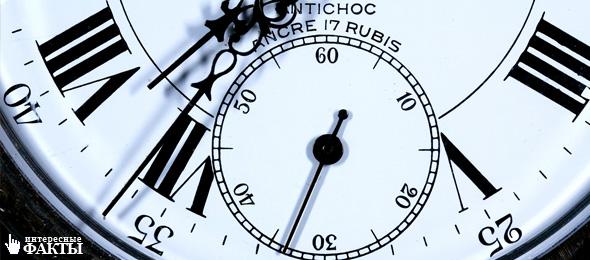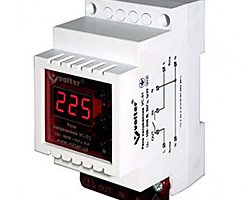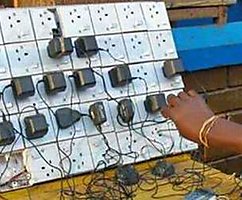24 hours ...
 Bashny.Net
Bashny.Net

As soon as a civilization shifted from a nomadic hunter-gatherer communities to farming communities, people have found the need to consider their possessions and objects around them. (If you leave in the morning in a pasture with five goats, and return in the evening with three, and you can not tell the difference - your things are bad). The concept of written language still just in its infancy, and so people have learned to count as do young children - with the help of his ten fingers.
Egyptian hieroglyphics 3000 BC indicate that while using the decimal system. So why did they move their clocks to the twelve-? Many believe that the duodecimal system emerged from the counting system, which the Egyptians inherited from the early Sumerian culture, which used to account not a finger, and every single joint. If you open the left hand, and will use the tip of the thumb to touch each of the three joints on four of your fingers, you end up with twelve. To measure time using this method Egyptians divided the day to the twelve half - or more precisely, a ten-day for two hours morning and evening twilight, and a twelve-hour night.
And do watch the Egyptians was based on the movement of the sky. They tracked a series of thirty-six small constellations, known as the "deans" who consistently rose above the horizon about every forty minutes. Sunrise each new dean marked the beginning of a new hour. Beginning of a new decade - Egyptian period of ten days - reckoned from the emergence of a new dean in the eastern sky just before sunrise.
During the ninth Dynasty (about 2100 BC) the Egyptians perfected their solar calendar system of regular observations of the appearance of these stars, and created a generalized annual calendar. Thirty-six decades have made three hundred and sixty days of the new calendar. The new system has proved to be accurate enough to accurately predict the annual flooding of the Nile during the rising of Sirius, even despite the fact that the actual length of the hours vary according to the season. "There were tables set up, which helps people determine the time at night with the help of surveillance deans. What is surprising - such tables were found even within the burial sarcophagi, probably to the dead could also determine the time, "says Dr Nick Lomb, curator of the Sydney Observatory.
And although the new calendar allowed to determine the time with great ease, flexibility provisions in the framework of his hours makes this system useless for the Greeks - they needed a day with intervals of equal length. Hipparchus, who is considered the greatest astronomer of antiquity, is credited with the transformation of the Egyptian stellar hours a standardized equinoctial hours, which we use in our day, and in which each period of light and dark on the equinoxes divided into twelve equal segments.
Tags
See also
Amazing facts about the wild boars
10 things that will change your idea of memory
20 Facts about the Aztecs, the last of the great Indian civilizations
50 amazing facts about the human body
Interesting facts about Pluto
Time zones of the planet
The most common misconceptions people
Facts About Earth
Anatoly Wasserman
Myths and facts about the Great Pyramid

















